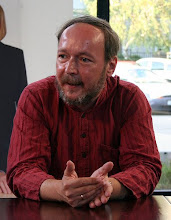
At the end of 1999 the legislature adopted an Act (http://www.disabilityindia.org/trustact.cfm) to establish a national trust to promote the rights of people with certain types of disabilities who were seen as most disadvanteged in terms of community involvement and independent living. The Act covers people with Autism, Cerebral Palsy, Mental Retardation and Multiple Disabilities. The objectives of the Act are to enable and empower persons with disability to live as independently and as fully as possible within and as close to the community to which they belong;
a. to strengthen facilities to provide support to persons with disability to live within their own families;
b. to extend support to registered organization to provide need based services during the period of crises in the family of persons with disability ;
c. to deal with problems of persons with disability who do not have family support;
d. to promote measures for the care and protraction of persons with disability in the event of death of their parent or guardian;
e. to evolve procedure for the appointment of guardians and trustees for persons with disability requiring such protection;
f. to facilitate the realization of equal opportunities, protection of right and full participation of persons with disability; and
g. to do any other act which is incidental to the aforesaid object.
a. to strengthen facilities to provide support to persons with disability to live within their own families;
b. to extend support to registered organization to provide need based services during the period of crises in the family of persons with disability ;
c. to deal with problems of persons with disability who do not have family support;
d. to promote measures for the care and protraction of persons with disability in the event of death of their parent or guardian;
e. to evolve procedure for the appointment of guardians and trustees for persons with disability requiring such protection;
f. to facilitate the realization of equal opportunities, protection of right and full participation of persons with disability; and
g. to do any other act which is incidental to the aforesaid object.
The Act has important provisions on legal guardianship. It recognises that the existence of a disability does not automatically demand the appointment of a guardian and if a guardian is appointed the purpose of that guardianship shall be set up. This in theory enables individually tailored guardianship, though the implementation of the law is different.
CRPD has made a paradigm shift from guardianship towards supported decision-making. This needs to be reflected in an amandment to the National trust Act. I am working together with Prof. Amita Dhanda on a proposal to that amendment. Then in August, Septembe and October I shall participate in three or four regional consultations on the amendment in different States of India.

No comments:
Post a Comment